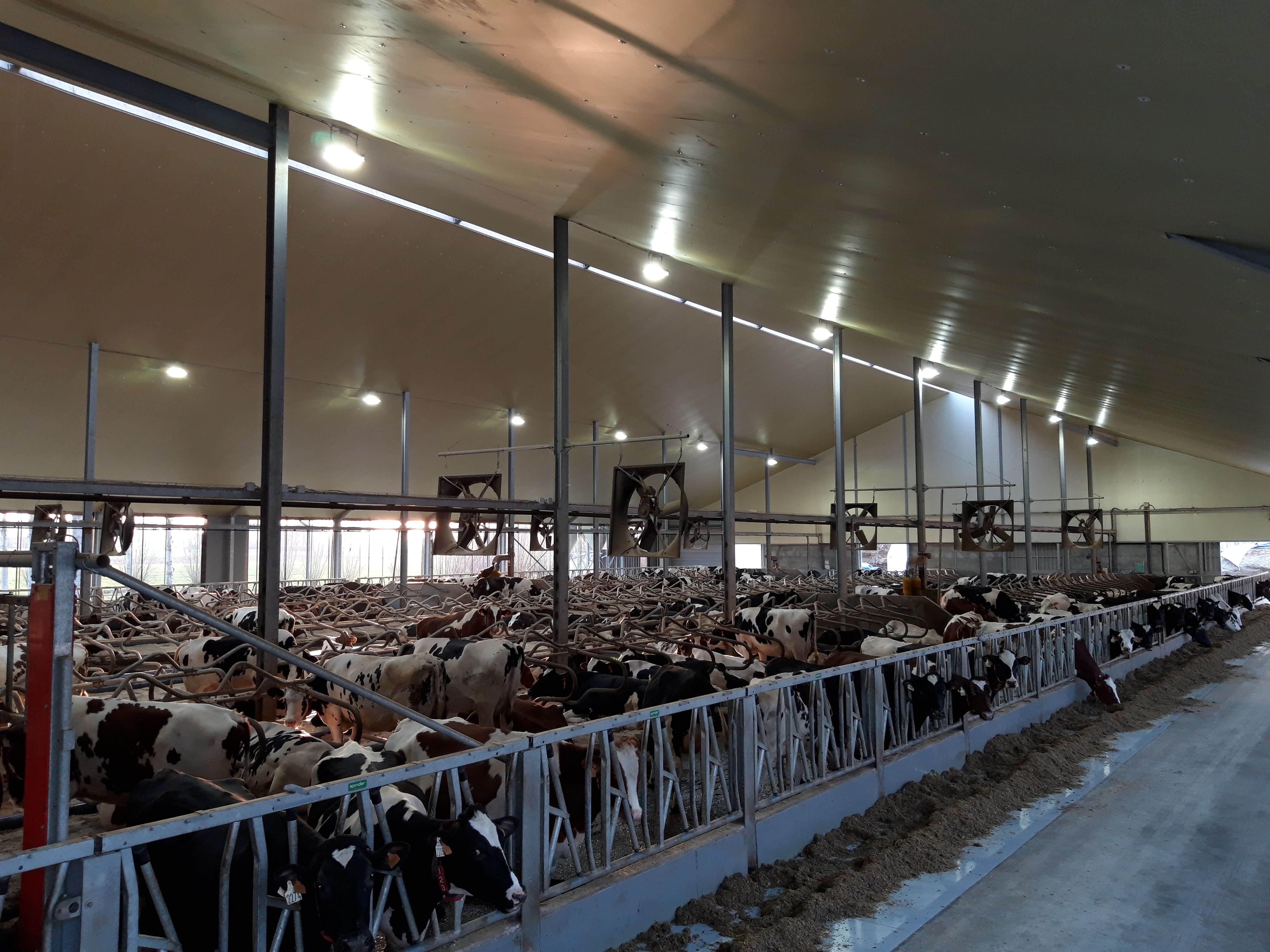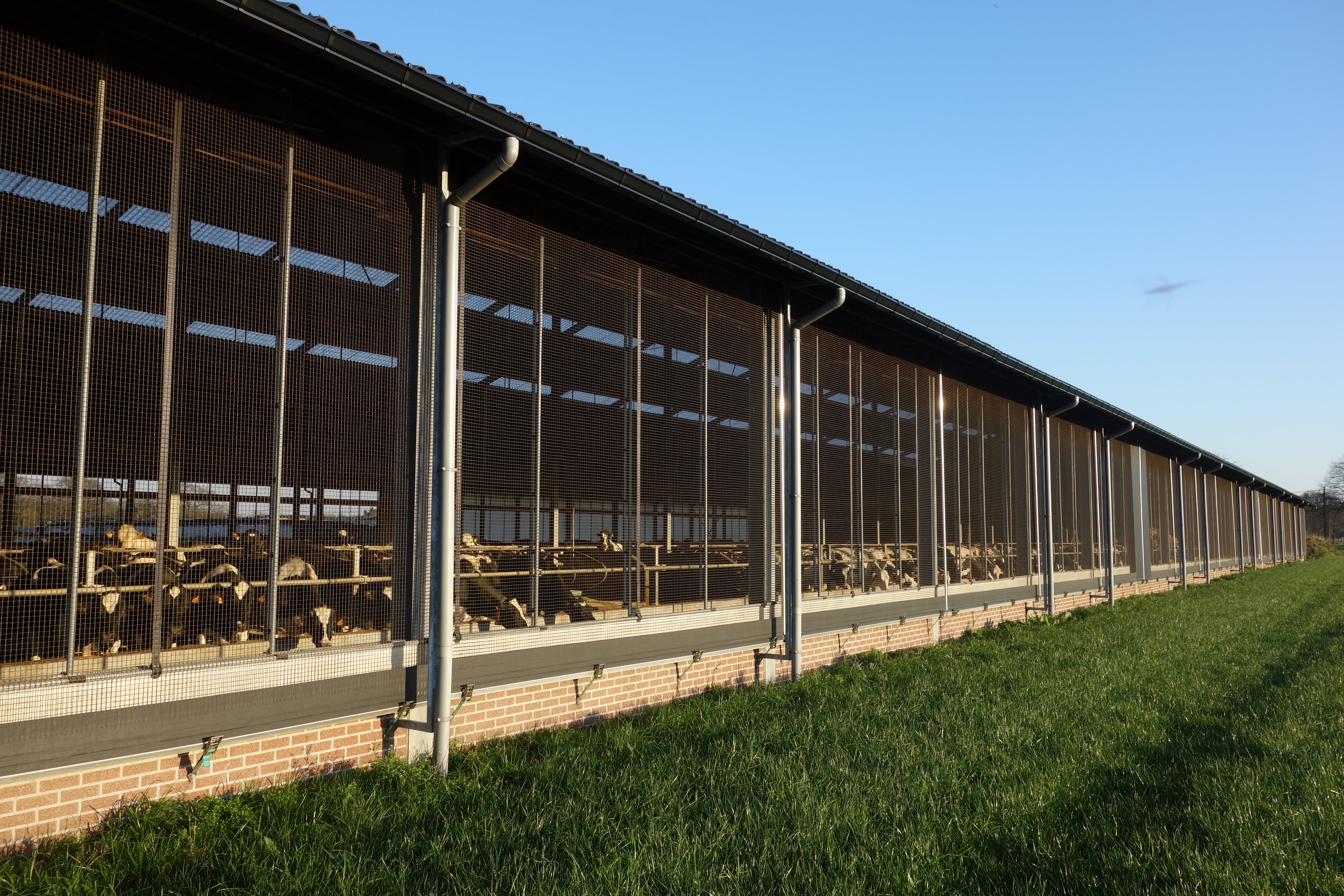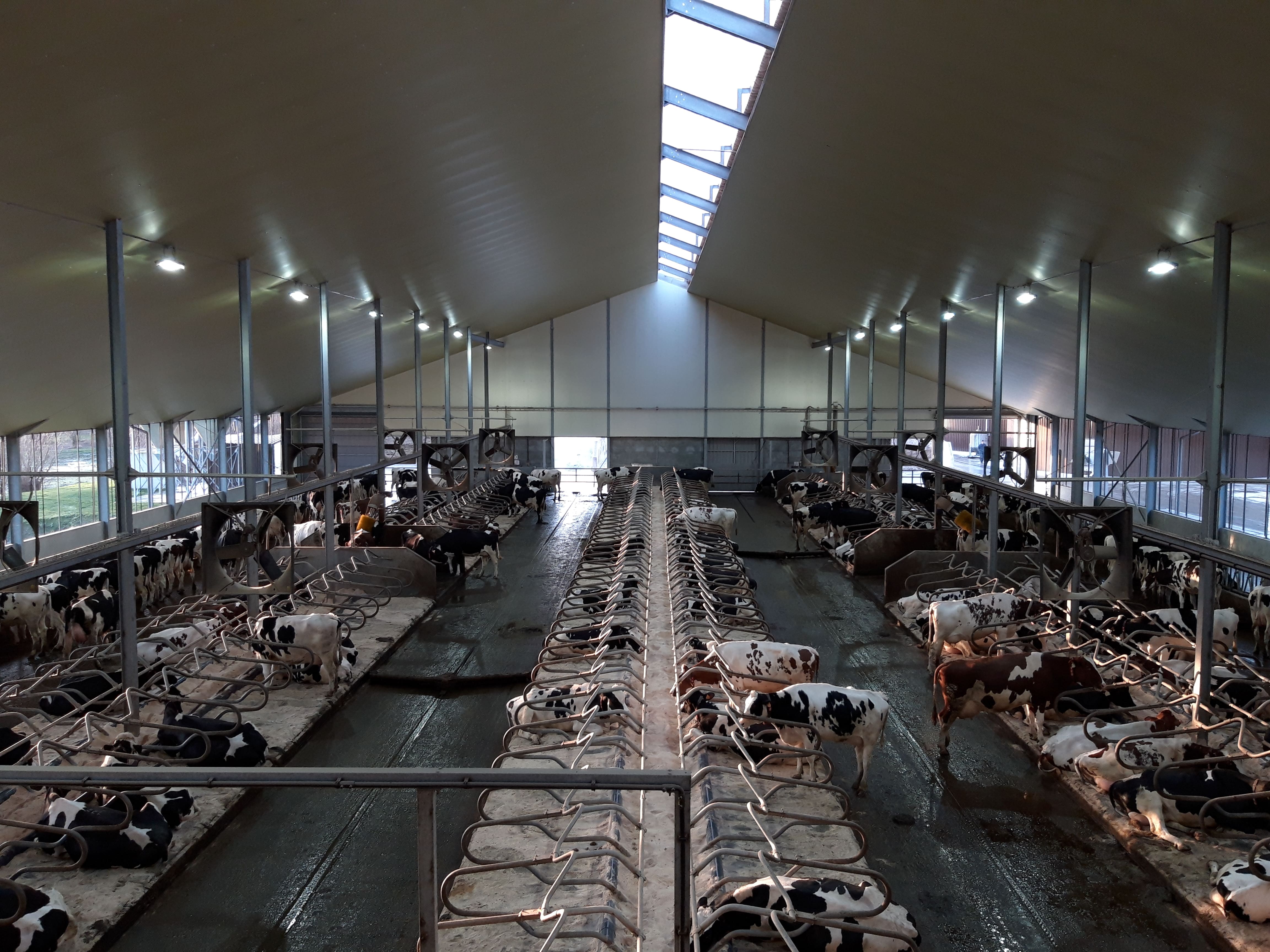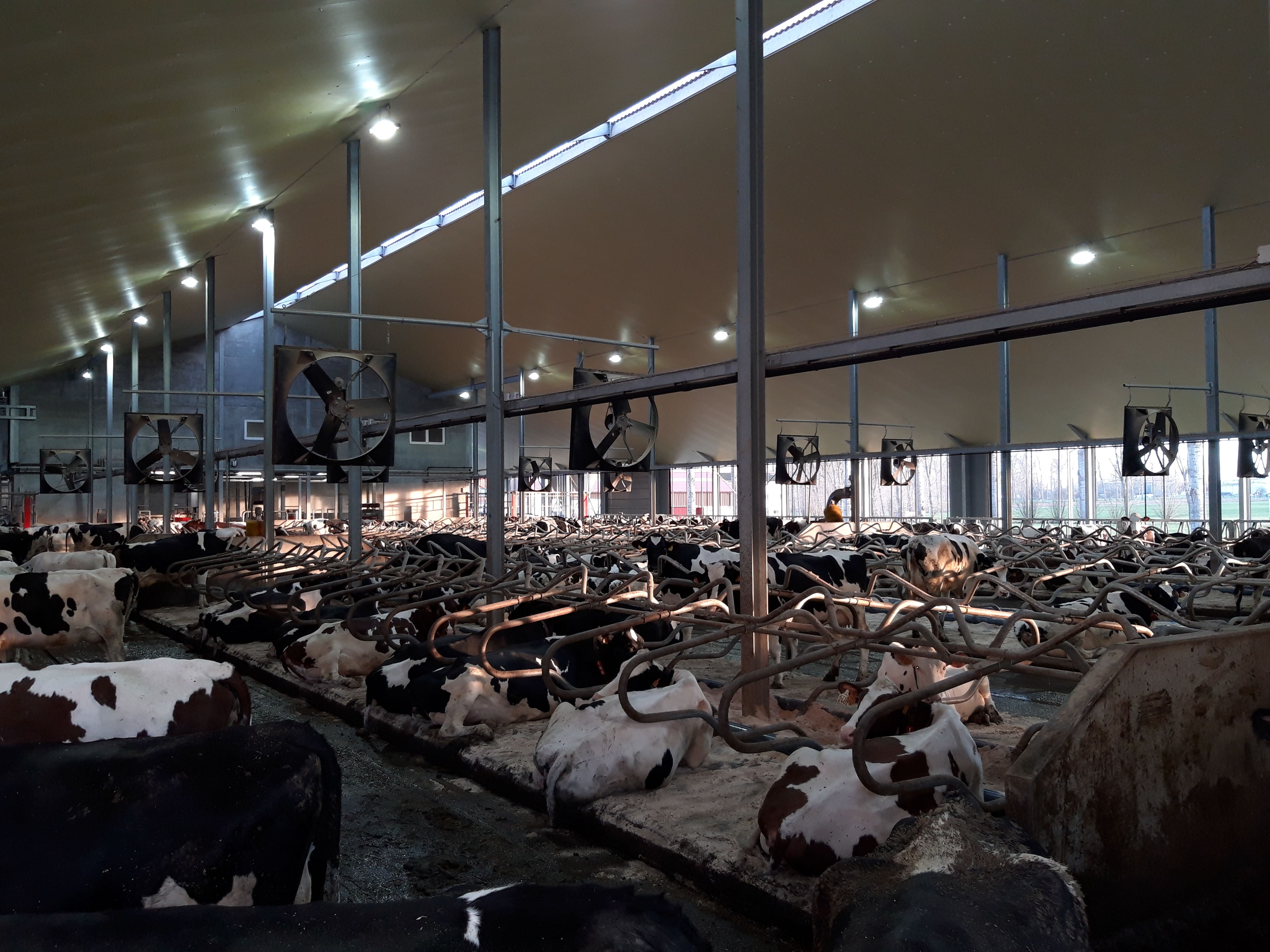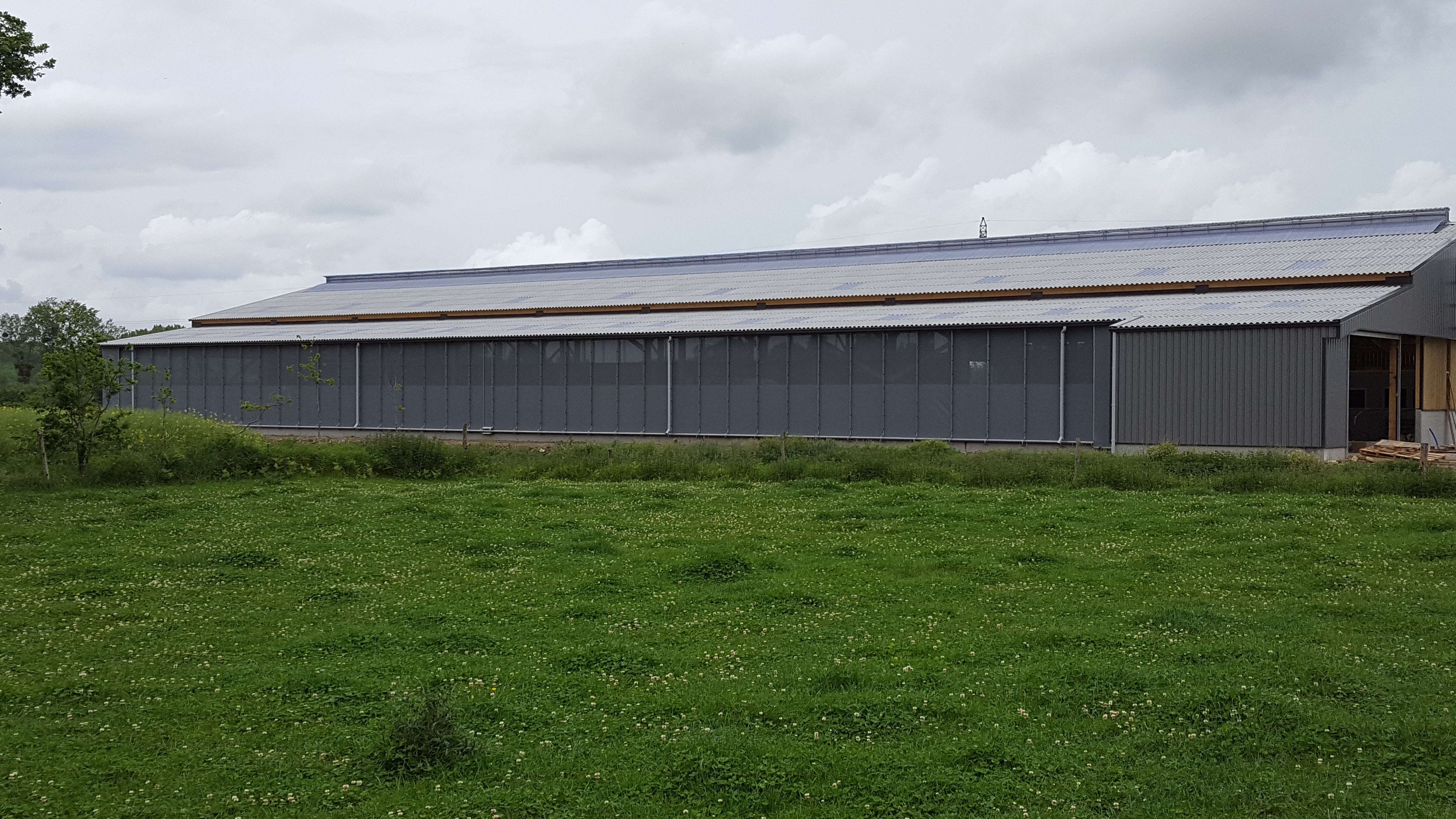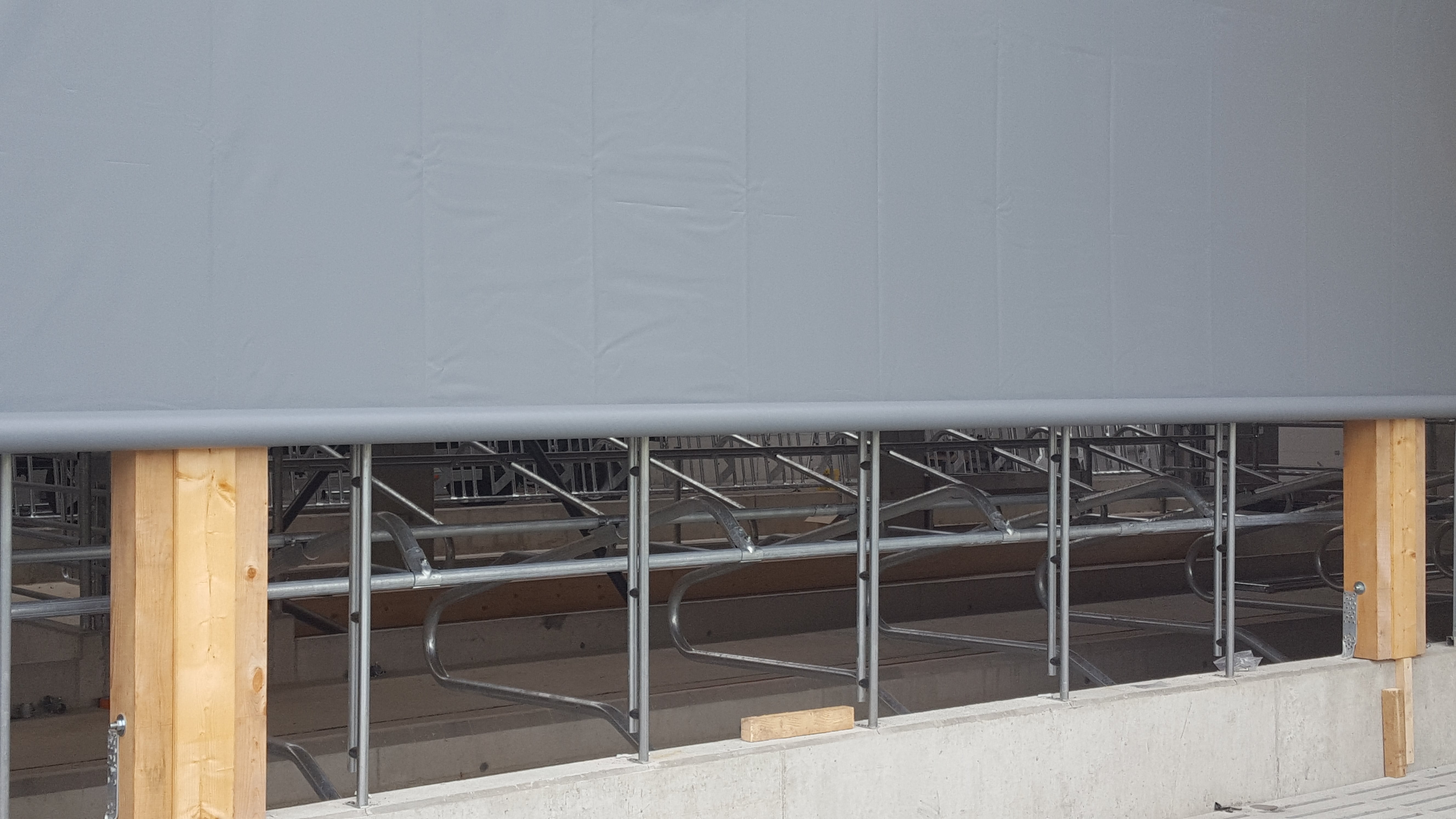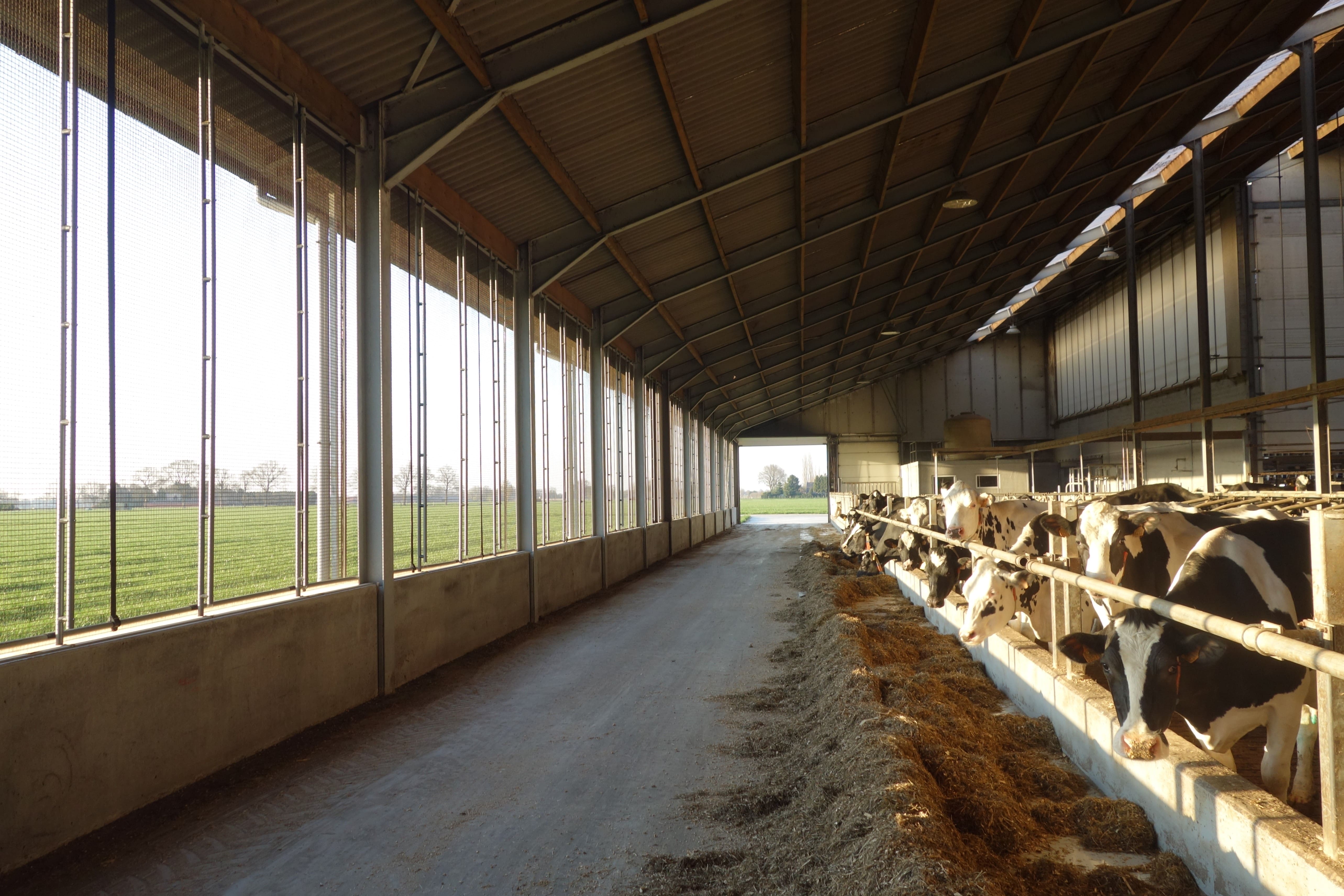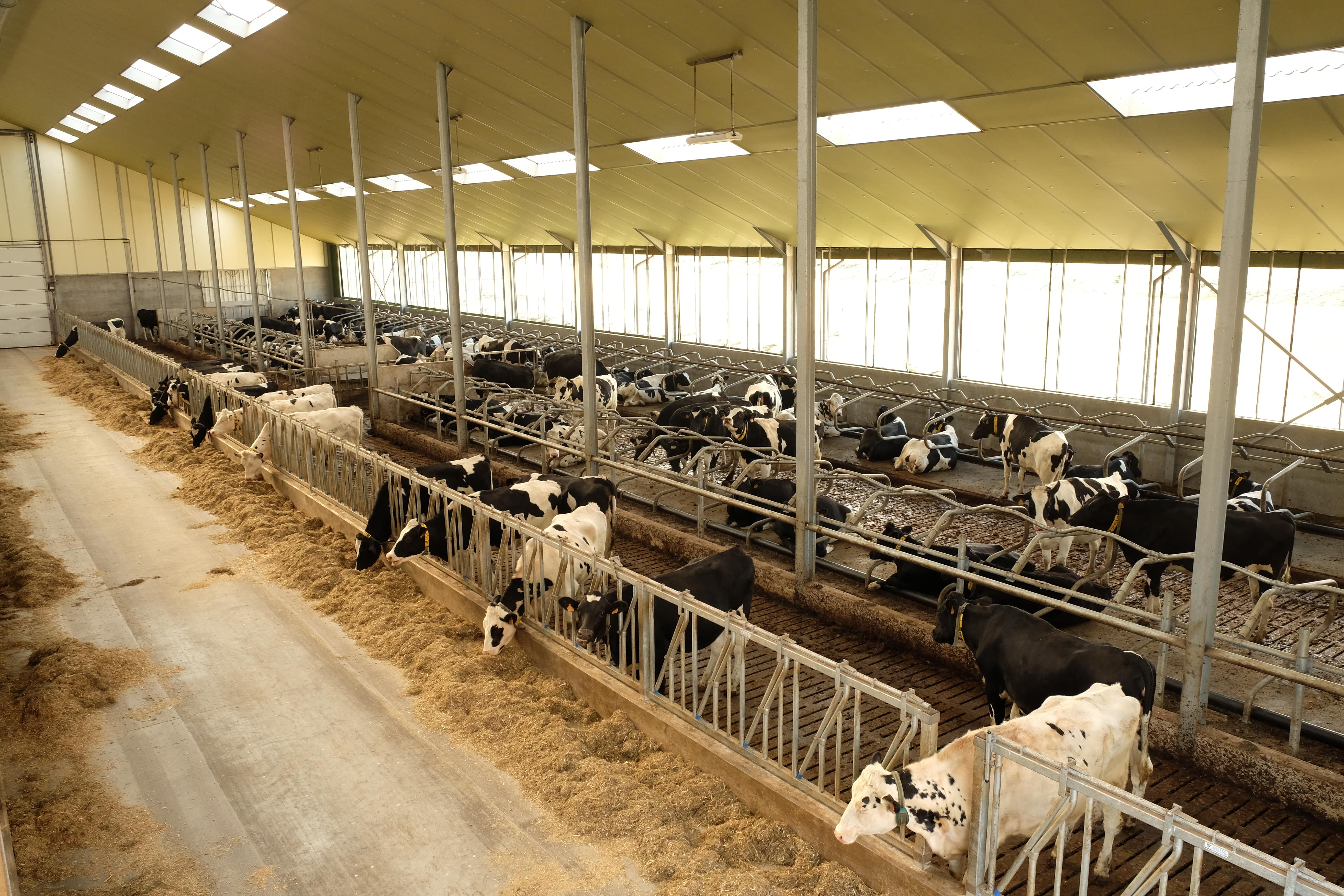Dairy barn ventilation
Dairy cattle
In order to create an ideal barn climate all year round, ventilation is required. This is achieved by combining natural ventilation and fans. Read more about this on our blog ‘Ventilation in dairy barns: a total solution.
Dairy barn ventilation - advantages at a glance
- Suppress heat stress
- Ventilate all year round
- Dry air means lower risk of infection
- Natural ventilation without draughts
- Cross or longitudinal ventilation
- Ventilation according to age groups
- Different systems
- Automatically adjustable
Suppress heat stress
Ventilating a dairy barn has a direct positive influence on the welfare of the animals. In summer, cows can already experience heat stress from 20° C. Sufficient air circulation helps to address this problem and contributes to optimal milk production. Read more about this on our blog 'Heat stress in cows'.
Ventilate all year round
Ventilating a dairy barn will be different in winter than in summer. When it's warm, the adjustable system is fully open to ensure maximum air intake. This ventilation is automatically boosted by fans from 20°C, or when there is no wind.
At winter temperatures, the sails are almost completely open. At the top, the air inlet is maintained, without direct draught on the dairy cattle. The fans are then turned off.
Dry air means lower risk of infection
In order to prevent the spread of disease, the pursuit of an optimal barn climate is of great importance. Moreover, the number of cows per barn has strongly increased in recent years, which is accompanied by increased disease pressure. Ventilation makes the barn drier and makes it more difficult for germs to survive. Ventilation also ensures optimum air exchange in young stock barns.
Natural ventilation without draughts
In the case of natural ventilation, it is important that there is ventilation without draughts caused by too fast airflows.
With natural ventilation, the air enters the barn as high as possible through the top, in order to achieve a nice flow in the barn without draughts.
In this way a natural cross ventilation is created: the fresh air enters via open sails on one side, and is discharged via the opposite side. Only from 20°C onwards will the fans increase the natural ventilation and provide additional cooling.
Cross or longitudinal ventilation
Depending on the type of construction and the situation, the fans can reinforce the natural cross ventilation, or they are chosen to be placed in function of longitudinal ventilation.
We will come to you to see the situation.
Ventilation according to age groups - Young Cattle/Dairy Cattle
The needs of the different animals must be taken into account when ventilating a dairy barn. Young cattle need less ventilation compared to dairy cattle. The sails of the adjustable systems in young livestock houses are composed differently than in large livestock houses.
At the place in the barn where young cattle are housed, the density of the sails of the adjustable system will be different from that of the adult cows. The climate computer is then set differently for each age group.
Fans are also placed and set according to the needs of the respective age category.
Different systems
Ventilating a dairy barn is done by combining different systems:
- Adjustable sails in a dairy barn
- Fixed sails in a dairy barn
- Doors in a dairy barn
- Fans in a dairy barn
Our representative will work with you to find out which combination of systems is the best option in your situation.
Automatically controllable - Climate computer
A climate computer ensures that the ventilation of a dairy barn takes place automatically. The sails and fans are controlled with it.
The climate computer takes into account:
- Wind speed
- Wind direction
- Inner temperature
- Outdoor temperature
- Air humidity
- Rain
- Light level
Benefits of a climate computer at a glance:
- Immediately respond to weather changes
- Never chasing after the facts
- 24h/24h regulated
- All sails are arranged, so they don't work against each other
- Adaptable if required
- Fans are controlled in function of indoor temperature
- Fogging can be controlled in extreme heat
- Nozzles on the barn can be controlled in extreme heat.
- Heating in for example robot rooms can be controlled in case of extreme cold.
- Lighting can be controlled.
Read more about this on our blog 'climate computer'.
